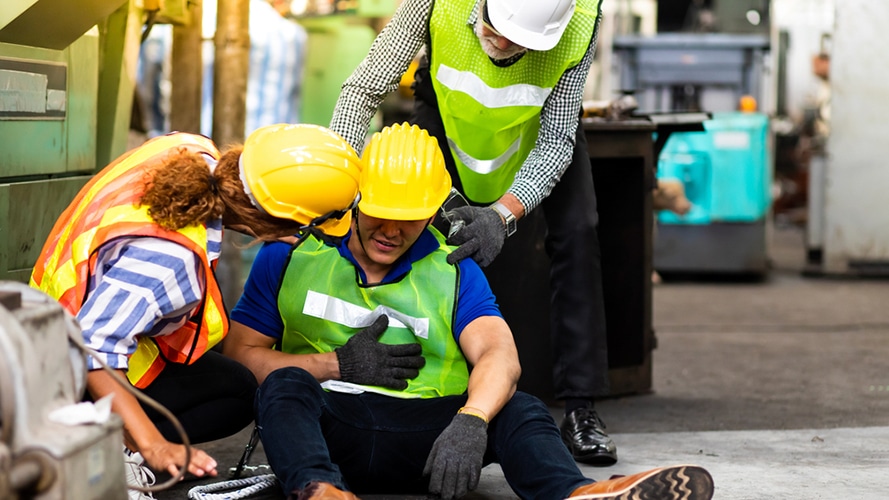What to do after a workplace concussion
After a head injury in the workplace, it’s sometimes hard to get back to normal. You might not feel like yourself as you struggle with uncomfortable—or unsettling—symptoms. Physical or mental challenges that might make it hard to do your job can drag on for days, or sometimes even weeks.
Thankfully, most people who experience mild traumatic brain injuries, or concussions, are able to make a full recovery after a relatively short period of time. But any brain injury is serious, and it’s hard to face an issue that has an undefined recovery timeline and a wide range of possible symptoms.
So what should you do after a workplace head injury, and what kind of workplace support are you likely to need after a concussion?
Concussion symptoms
While moderate or severe traumatic brain injuries (TBIs) are medical emergencies and require immediate care, many injured people tend to overlook concussions or push past the symptoms of a mild TBI.
According to the CDC, these symptoms include:
- Sensitivity to light or noise
- Dizziness and loss of balance
- Tiredness or sleeping more or less than normal
- Nausea
- Problems with concentration, short- or long-term memory, or attention
- Anxiety, sadness or irritability
- Vision problems
After any blow to the head, it’s a good idea to get checked out by a medical provider and receive a diagnosis and care plan. If you have a headache that won’t go away, slurred speech or continued nausea, get checked out as soon as possible.

Returning to work after a concussion
After a concussion, providers will usually recommend a few days off from work to rest and monitor symptoms. After that, a lot depends on how you’re feeling and whether you’re still experiencing issues. It’s important to wait for a doctor’s OK before you drive, operate machinery or do any physical labor.
When you return to work, it may take a few more days, or even weeks, of light duty tasks or special accommodations before you can get back to your regular role. According to Mount Sinai, accommodations may include:
- Leaving work early
- Taking extra breaks
- Having access to a low-stimulation resting spot, like a dark room
- Avoiding any activities that could lead to another head injury
- Avoiding any work at heights
- Partnering with a coworker for help when needed
- Getting extra time for tasks
While we’re used to the idea of physical rest as a means toward recovery, concussions require cognitive rest as well. Pushing hard the first days and weeks after a concussion can make it harder for the brain to heal.
Because TBIs can cause so many unseen symptoms, it’s also important to communicate with your employer and coworkers about what’s going on. You may need to explain your sensitivities to light or noise, or talk about how you feel if you’re experiencing irritability, anxiety or confusion.
For some people, post-concussion syndrome can cause symptoms to stretch on for months. Researchers are still unclear how and why post-concussion syndrome affects some people with mild TBIs, while others recover completely in short periods of time.
Concussions can happen after slips, trips and falls, but they also may occur in car crashes or from workplace violence. If you’ve been hurt, don’t push through your injury or try to downplay your symptoms. Workers’ compensation can help as you take the time you need for your brain to heal.
Talk to an Atlanta workers’ comp attorney today
If you’ve experienced a workplace head injury, you may need time off to heal and require accommodations at work when you return. Contact the Law Offices of Laura Lanzisera today for a free consultation, or give us a call at 404-991-5097.
